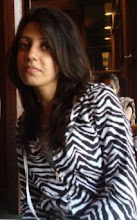(February 2nd.2010) At Funland in Clifton, Karachi, 24 people were left stranded between 40 and 80 feet in the air when a ride called ‘Magic Carpet’ malfunctioned. Magic carpet was one of the most popular rides at Funland for many families since the Funland amusement park and the public park besides it seems the very few family entertainment places existing in Karachi.
It is now shut for about four months. According to unofficial reports there was an accident resulting in several minor injuries after which the management has decided to shut down temporarily.
The ride features a wooden motor drome at an angle of 72 degrees and was 80 feet in diameter. It has been a major attraction and is enjoyed by children and adults equally. With the office stinking of pan and gutkha, it was only possible to speak to a representative of the manager outside their office. The management at Funland refuses to accept any case of accident. Park officials say that the passenger restraint system was working properly. However, one of the security staff members stated that “ride was only a year old and has been closed down due to some technical issues”. He also added that their maintenance/technical staff has failed to detect the fault and the chances of getting it fixed are very few. They have also consulted technicians from all over the country who, according to the security in charge, have given up on this one.
On observation, the remains of the ride lays rusting in the rain and the chilly weather of Karachi; without any covers, which would only risk its suitability once the existing technical problems are solved. With magic carpet down and un-operational indefinitely, there only remains less than 8 so called exhilarating rides to entertain the 70% lower and middle class families of Karachi who visit the funland.
The question remains that is it the operator error or a rider misconduct or maybe there was something wrong with the ride’s design to begin with. Funland might be an affordable activity for the most of our working class families but the question remains if these rides and their designs are reliable and if not then if such high risks are really worth it. At the same time, one is also tempted to think whether it is bad ownership which has ordered cheap parts and spare parts - from China where the black market for the spare mechanical parts is the largest.
One may find enough staff ensuring rider safety and conform in foreign amusement parks. At the same time, rides are tested for their safety throughout at the expenses of devoting an entire season out of business. On the other hand, Karachi Funland, though being in business 365 days of the year (Except strikes and violent days) and having a much bigger customer base is failing to maintain the standards.











